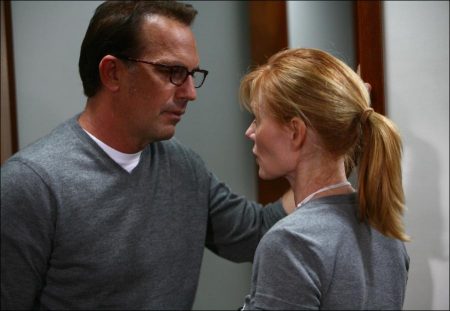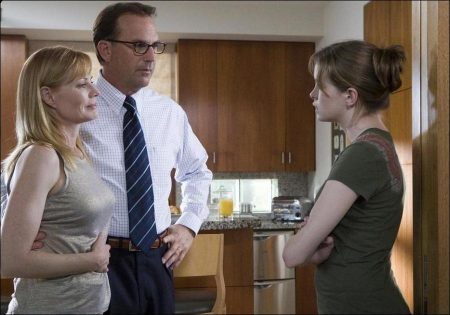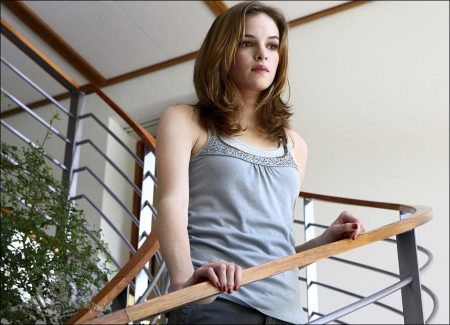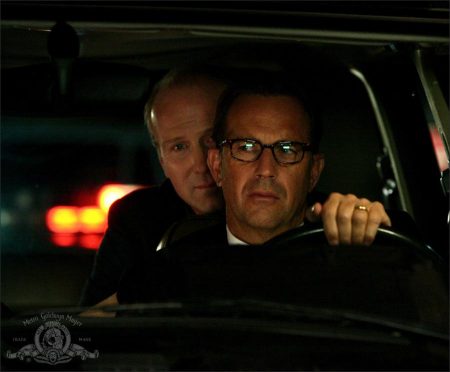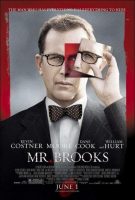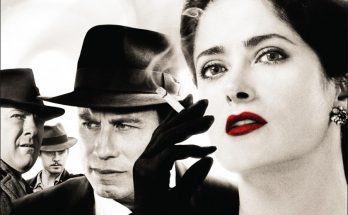Tagline: The man who has everything has everything to hide.
Consider Mr. Brooks: A successful businessman, generous philanthropist, loving husband and father, a true pillar of the community. Everyone says, he’s perfect. Nonetheless, Mr. Brooks harbors a sinister secret — he’s an insatiable serial killer, so lethally clever that no one has ever suspected him-until now.
Earl Brooks (Costner) has it all: a loving wife (Marg Helgenberger) and devoted daughter (Danielle Panabaker), community standing, and his own thriving business. Mr. Brooks, however, lives another life, unknown to anyone else. He is also the notorious serial murderer branded as The Thumbprint Killer.
Though recently inactive, his pathological compulsion is inflamed once again by his cunning, wicked alter ego (Academy Award winner William Hurt), whom Mr. Brooks faults for his transgressions. But succumbing to one more malevolent urge to murder an unsuspecting couple, Mr. Brooks commits his first mistake–he is observed by a peeping Tom photographer (Dane Cook), who chooses to blackmail him with a bizarre demand.
This last crime, though, also unleashes a tenacious detective (Demi Moore) whose own personal crisis drives her furiously to solve the identity of the Thumbprint Killer, putting her on Mr. Brooks’ trail. Now, for the first time, Mr. Brooks faces the endgame — unless he can continue to conceal his shocking secret life, and his true identity forever. The film stars Kevin Costner, Demi Moore, Dane Cook, William Hurt, Marg Helgenberger, Ruben Santiago-Hudson, and Danielle Panabaker.
The unsettling question of how a charismatic neighbor, business associate and family member can harbor within a cold-blooded killer has long confounded society – and inspired writers and filmmakers to take audiences into darkly fascinating and suspenseful worlds where they’ve never been before.
With MR. BROOKS comes a fresh twist in the tale of how one man can lead a double life of both magnificent success and gruesome crime. Is Mr. Brooks a fantastic guy you’d be proud to call your friend — or is he a twisted killer you definitely don’t want to run into on the wrong dark night? At once seductive and deadly, upstanding and beyond the pale, Mr. Brooks is so compelling and terrifying precisely because he is both.
A Murderer Who Breaks the Mold
The unsettling question of how a charismatic neighbor, business associate and family member can harbor within a cold-blooded killer has long confounded society – and inspired writers and filmmakers to take audiences into darkly fascinating and suspenseful worlds where they’ve never been before. With MR. BROOKS comes a fresh twist in the tale of how one man can lead a double life of both magnificent success and gruesome crime. Is Mr. Brooks a fantastic guy you’d be proud to call your friend — or is he a twisted killer you definitely don’t want to run into on the wrong dark night? At once seductive and deadly, upstanding and beyond the pale, Mr. Brooks is so compelling and terrifying precisely because he is both.
“The thing about Mr. Brooks is that he could very well be someone you know,” says director Bruce Evans, who co-wrote the film’s screenplay with his long-time partner Raynold Gideon. “We all have our dark side, but Mr. Brooks acts on his to an extreme. He’s the guy you think wouldn’t harm a fly, who truly loves his family and has a wonderful life by all standard measures, but also he has a very grave compulsion he cannot fix.”
For nearly everyone involved in the production of MR. BROOKS, the film’s intensely dark drama and suspense represented a major departure. This was true from the start, as Evans and Gideon – who are best known for their Oscar-nominated screenplay for the now-classic coming-of-age story “Stand By Me,” as well as such hit comedies as “Jungle 2 Jungle” and the sci-fi romance “Star Man” – set out to tackle a story unlike any other they had ever attempted.
Says Gideon: “We’re usually associated with family films; but we had wanted for a while to delve into a darker story. We both thought addiction was an interesting area, which led us to the question of what would be the worst addiction possible — and to the idea of a man who is literally addicted to killing people, who gets off on it, who can’t stop the cycle, even though he would like to stop putting his family in jeopardy.”
Thus was born MR. BROOKS and with him sprang to life his alter-ego, Marshall – Mr. Brooks’ most unspeakable thoughts and urges made manifest as a kind of evil “imaginary friend.” Evans says: “Marshall is that voice we all have in our heads that says ‘go ahead, be bad, it’ll be fine, it’ll be fun’ and the character gave us a way to visualize that.”
With this original route inside the immoral madness of a killer’s head, Evans and Gideon were able to explore Mr. Brooks’ descent into his own worst nightmare, as he finds himself being chased by both a detective and a disturbing young “fan,” while facing the possibility that the ghastly truth about him will finally come out – and destroy his family.
Popular culture and classic films have long depicted the serial killer’s warped reality – including such works as the Hannibal Lector series, the Zodiac killer films, “The Boston Strangler,” “The Talented Mr. Ripley,” “Strangers on a Train,” “Seven,” “Psycho,” the Jack the Ripper films, and the recent conscience-stricken killer on the acclaimed Showtime series “Dexter,” among many others– Evans and Gideon saw that the story of Mr. Brooks could break new ground. His crimes are distinctive, as Mr. Brooks carries out a kind of eerie courtship with his victims, carefully choosing them, following them, learning about their habits and lifestyles, and then experiencing pure exhilaration as he consummates the “relationship” in grisly, but efficiently planned murders.
“Earl Brooks is not a standard serial killer,” says Evans. “We always thought of him as a man who has a genius for reading other people, who is always the smartest guy in the room. It’s what has made him so successful as a businessman and as a husband – that he knows what other people are thinking. And it’s this same skill that makes him so successful as a killer. He can read his victims and he can read the police investigators and he’s always one step ahead of everybody, which is part of the feeling to which he’s addicted.”
Yet, the fact that Mr. Brooks is perceived as so noble and righteous inside his community also seemed to strike close to a reality that has mystified many in popular culture. “You will often see in media accounts of killers statements like ‘he was such a nice guy,’ or ‘he could be so charming,’” notes Evans. “Even the BTK Killer [Dennis Rader] was a church deacon. Sometimes people can hide the dark side of themselves from everyone and I think that’s part of what intrigues us about these kinds of characters.”
As the story of Earl Brooks unfolded, the writers themselves were taken aback by the wild curves in direction it took. “We like to write in a very organic way where the surprises keep coming,” notes Gideon. “One of the surprises for us was Marshall suddenly coming into the story to voice all of Mr. Brooks’ unspoken fears, delusions, angers and misconceptions – becoming, in effect, his survival instinct. And this was also true with Mr. Brooks’ daughter. We didn’t really know who she was until we started to wonder – why has Jane dropped out of school? That led us in some very interesting directions.”
The tone of the screenplay also evolved organically, taking on aspects of both black comedy and stylish film noir that play off one another. “The comedy comes out because it’s the way that Ray and I view life,” says Evans. “I think we both see that we’re all riding on the edge of the abyss and yet life is also really funny. No matter how dark things get, there’s always flashes of humor.”
Intrigued at every turn by Mr. Brook’s next move, Evans and Gideon found themselves writing at top speed, finishing the screenplay in just ten weeks. Even as they were writing, they began to envision the actor they’d most love to see in the role of Mr. Brooks – and it was always Kevin Costner. The duo thought he would be so perfect precisely because he would be playing so completely against type.
“Kevin is perceived as such a hero, a romantic hero and an action hero, and that’s the kind of guy we wanted,” explains Evans, “a charismatic hero type who draws you in and then suddenly shocks you with this completely opposite side.”
At first, the idea of Costner starring as Mr. Brooks was little more than a pipe dream, especially because Evans was hoping to make this film his sophomore directorial effort. But boldly going after the long shot, Evans and Gideon gave their completed screenplay to mutual friend Kevin Reynolds, who, impressed with the story, in turn agreed to get it into the hands of Costner. The ensuing wait would be epic as reports came back of Costner being away, of Costner not getting the script, of Costner losing the script. But then came the call that would change everything.
“The call came in and the voice said, ‘Hi, this is Kev,’” recalls Gideon. “I said ‘Kev who?’ He said, ‘Kevin Costner – why don’t you drop by the house so we can talk about this script.”
That long-awaited meeting led to more conversations and, ultimately, Costner jumped in with both feet, committed to not only starring in the picture but also producing it independently. Says Costner of his initial reaction: “The story is dark, it’s smart and you laugh ten times out loud despite or because of the scariness. I thought it was a really compelling tale created out of a very hard subject.”
He continues: “I was taken aback by how good the writing was and what an interesting window it gave into a serial killer’s life. It didn’t let Mr. Brooks off easy, but it provided a really intriguing view into a despicable man’s inner mind. It really rode the razor’s edge.”
Also coming on board with Costner was producer Jim Wilson, who co-founded Tig Productions with Costner and has produced many of Costner’s films, including the Oscar®-winning “Dances With Wolves,” “The Bodyguard,” “Wyatt Earp” and “Message in a Bottle.”
At first, Wilson was surprised by the subject matter, but the script and the idea of a radical departure for Costner excited him. “It was certainly an unusual role for Kevin,” Wilson admits. “I remember asking him ‘are you sure you want to do this’ and he assured me that he really did. When I read the script, I thought it was an incredible page-turner and I liked that it was more than just a thriller, that it looked at the struggle of conscience, and the failure of conscience, at the heart of Mr. Brooks. Most of all, what I loved was the unpredictability — that it’s a story about a murderer that doesn’t go in any of the standard directions. Even though he’s a villain, Mr. Brooks is like an onion with a zillion layers. You really want to know more about who he really is and what makes him tick.”
Says Bruce Evans of working with Wilson: “He’s the kind of producer who is so interested in making a good movie that he will hold your feet to the fire to get it. He had a wonderful sense of what the film was about and he gave us a lot of room to make it the best it could be.”
The producers, in order to make their vision come to life, partnered with Los Angeles-based Element Films, one of the leading, new independent film financing and production companies headed by Sam Nazarian and Adam Rosenfelt. Element had previously produced a slate of independent films starring such actors as Edward Norton, Ryan Reynolds, Laurence Fishburne, Ryan Phillippe, Brendan Fraser, Michael Keaton, et al.
Continue Reading and View the Theatrical Trailer
Mr. Brooks (2007)
Directed by: Bruce A. Evans
Starring: Kevin Costner, William Hurt, Demi Moore, Dane Cook, Marg Helgenberger, Rubin Santiago-Hudson, Danielle Panabaker, Aisha Hinds, Lindsay Crouse, Yasmine Delawari, Traci Dinwiddie
Screenplay by: Raynold Gideon
Production Design by: Jeffrey Beecroft
Cinematography by: John Lindley
Film Editing by: Miklos Wright
Costume Design by: Judianna Makovsky
Set Decoration by: Anne Kuljian
Art Direction by: William Ladd Skinner
Music by: Ramin Djawadi
MPAA Rating: R for strong bloody violence, some graphic sexual content, nudity and language.
Distributed by: Metro Goldwyn Mayer
Release Date: June 1, 2007
Visits: 174
